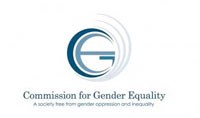Organisations should adopt business plans to achieve meaningful gender transformation, the Commission for Gender Equality (CGE) said on Wednesday (6 February).
"Transformation requires a business plan incorporating targets and strategies, and innovation," commissioner Janine Hicks said during a public hearing in Johannesburg.
She was presenting the commission's closing statement after a hearing on the Mbombela local municipality's attempts to address transformation in the workplace.
Mbombela municipal manager Xolani Mzobe acknowledged that in terms of gender parity the situation at the municipality was "not as rosy as it should be".
He said the municipality had employment equity targets, but added that the organisation fell below these goals.
Mzobe said: "One of the problems you always face is to balance the rights of the employee with equity. In some cases, a male employee with the required skills and experience could not be appointed to a particular position, because a woman was needed in terms of employment equity."
Deputy chaiman of the CGE Thoko Mpumlwana said Mbombela local municipality had "a lot of work to do".
"Equality means equality," she said.
The commission found there appeared to be discrepancies between policy statements and implementation and accountability with regard to gender and disability transformation in the municipality. Earlier, it ruled that Msukalingwa municipal manager Thami Dlamini contravened the CGE Act and could face criminal charges.
Dlamini failed to attend a CGE hearing on Wednesday (6 February) despite being subpoenaed to appear.
Dlamini and Mzobe failed to attend the initial hearings in October to account for the slow pace of gender transformation in the workplace, prompting the CGE to subpoena them both.
While Dlamini was liable for criminal charges, CGE chairman Mfanozelwe Shozi said it would not pursue the matter, provided Dlamini co-operated with the commission in future.
Source: Sapa via I-Net Bridge





































